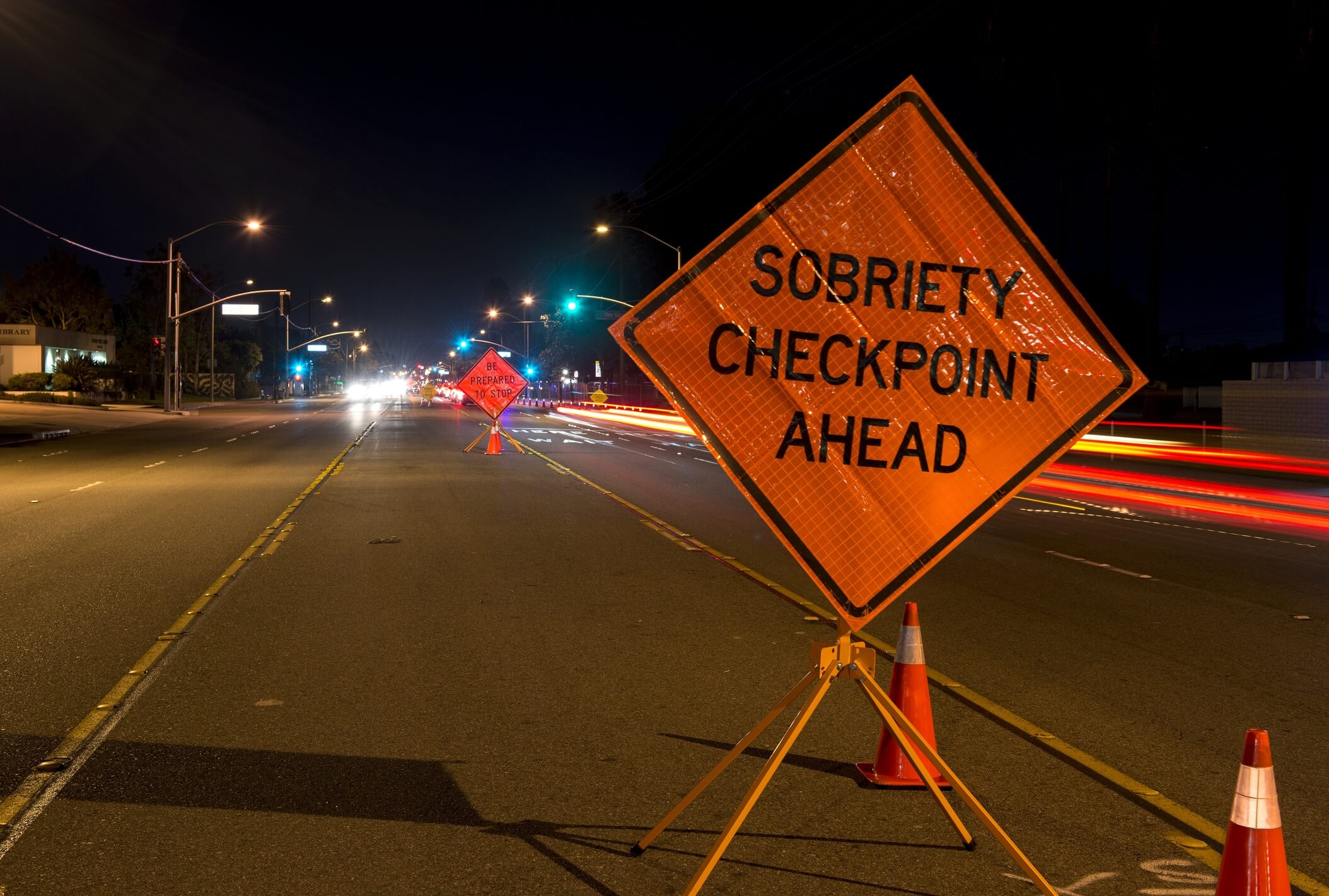Does your heart pound thinking about approaching a DUI checkpoint? Do you feel uncertain about how to get through one without scrutiny?
You deserve peace of mind, and this article will help you handle these situations. We can support and prepare you to protect your rights and contribute to the safety of all drivers on the road.
Don’t let uncertainty dictate your experience. Equip yourself with the necessary know-how, and ask us for a referral if you need legal help!
Understanding DUI Checkpoints
A DUI checkpoint is a pre-announced roadblock to check drivers for sobriety. These checkpoints often occur at locations and times where impaired driving is more likely. The objective is straightforward: to identify and deter drunk drivers. Officers typically stop vehicles every third or fifth car to ensure neutrality and non-discrimination.
The legal basis for DUI checkpoints comes from a balancing act between individual rights and public safety. The U.S. Supreme Court upheld their constitutionality in a milestone 1990 case. The ruling states that the interest in preventing drunk driving was a proper justification. However, the remaining details depend on state legislation. Some jurisdictions ban this police tactic, while others have strict guidelines to prevent arbitrary searches.
Preparing for a DUI Checkpoint Encounter
The most effective way to navigate a DUI checkpoint is to ensure it isn’t a concern in the first place. Planning and commitment to sober driving are paramount. Make a conscious decision to avoid driving under the influence of drugs or alcohol. Also, designating a sober driver or deciding to stay put until you sober up are critical decisions to protect yourself and others.
Furthermore, consider alternatives to getting behind the wheel if your plans involve alcohol. There are many options at your fingertips. Ride-sharing services like Uber and Lyft, taxi services, or public transportation are reasonable options. Some communities even offer programs for free rides on holidays with higher drinking rates.
One of the most important things you can do is to ensure all necessary documentation is accessible. Having documents like your vehicle registration or proof of insurance ready helps significantly at a DUI checkpoint. It demonstrates your preparedness to law enforcement, and they will appreciate the cooperation. You could keep these details in a specific location, like the glove compartment or a holder on your sun visor. This simple act of preparedness can make the stop much smoother and quicker.
It is equally critical to stay calm and collected. The police can misinterpret anxiety as a sign of guilt, so take deep breaths and remain composed. Avoid sudden or suspicious movements that could raise alarm and escalate the situation.
Dealing with Possible Outcomes
Respect and brevity can get you through most DUI checkpoints you encounter. Respond politely to questions and keep the answers brief. The officers may ask for your license and registration, and they may inquire about your evening or destination. Do not volunteer unnecessary information or engage in small talk. The police appreciate direct and polite responses, which can lead to a more efficient process for everyone.
Nonetheless, understand your rights, including your right to remain silent. You do not have an obligation to answer incriminating questions. However, be aware that doing so may raise suspicions and lead to further scrutiny.
You also have a right to refuse a sobriety test. There is no legal penalty for refusing one in many states. Regardless, it is essential to decline respectfully and be aware of the implications. Your refusal could become evidence of impairment in court.
Step out of your vehicle safely and calmly if an officer asks you to do so. Turn off your engine, unfasten your seatbelt, and check for traffic before opening your door. Also, avoid sudden or jerky movements since the police could misinterpret them as a sign of intoxication or agitation. This request may feel intimidating, but it is a standard part of many DUI checkpoint procedures. Complying safely is in your best interest.
Field sobriety tests include a series of physical tasks such as standing on one leg or walking a straight line. The goal is to assess your balance, coordination, and cognitive function. You might also receive a request to take a preliminary breath test. Listen carefully to the instructions given by the officer if you choose to comply.
After the Checkpoint
Take a moment to refocus on your driving after successfully navigating through the DUI checkpoint. They can be disorienting with the lights and interactions. So, ensure you are fully attentive when you rejoin the traffic. Adjust your mirrors if necessary, check your surroundings, and merge safely.
It is crucial to handle the aftermath responsibly if you receive a citation or get arrested. Take notes of the encounter as soon as possible while your memory is fresh. You should note the time, location, and any communication that occurred. These details can prove invaluable if you must contest a charge or appear in court. Then, contact a local DUI attorney for professional advice about the next steps.
Consult a Local DUI Attorney
A DUI checkpoint can be straightforward with the appropriate knowledge and attitude. Knowing how to conduct yourself can get you through smoothly. However, if you find yourself facing legal complications, seek professional guidance.
We can refer you to a local DUI lawyer today. You only have to call our representatives at (866) 345-6784 or complete this easy online form!

